- Home
- William Bell
Forbidden City
Forbidden City Read online
ALSO BY WILLIAM BELL
NOVELS:
Crabbe
Absolutely Invisible
Five Days of the Ghost
No Signature
Speak to the Earth
Zack
CHILDREN’S BOOKS:
The Golden Disk
River, My Friend
Table of Contents
Cover
Other Books by this Author
Title Page
Acknowledgements
Dedication
Prologue
March 29
March 30-31
April 1
April 4
April 6
April 7
April 8
April 14
April 15, 12:15 A.M.
April 15
April 24
April 26
April 27
May 5
May 20
May 21
May 22
May 23
May 24
May 25
May 26
May 27
May 28
May 29
May 30-June 2
June 3
June 4
June 6
June 7
June 8
June 9
June 28
Afterword
About the Author
Copyright
Acknowledgements
Thanks to John Pearce for support and encouragement in the writing of this book; to Philippa Dickinson for valuable suggestions; to Chris Thomas, Marcello Tulipano, Dawn Edmonds, Candace Nelson, and Dylan Bell for helpful ideas; to Shaun Oakey for painstaking work on copy-edit; and to Doug Woolidge for technical information about acupuncture.
Last and most of all to my beloved friend for her invaluable assistance in virtually every aspect of this book, and whom, because of the subject matter of this novel, I cannot name.
This book is dedicated
to the memory of my father,
William Bratty Bell
Prologue
We studied a poem in English class last spring and, believe it or not, I’ve been thinking about it a lot lately. It’s about a young soldier-king named Ulysses who sails off to fight a long bitter war in a far away country. On his sea-journey home he gets battered off course a few times and endures many adventures. When he finally drags himself out of the waves and onto his own shores he’s a lot older than he was the day he left. In more ways than one.
The thing is, he doesn’t fit in anymore. His adventures have changed him so much that the island kingdom he missed so much seems like a pile of barren rock. His wife and son are strangers. His subjects don’t understand him.
I know how Ulysses felt. How relieved he was at first that it was all over and he was safe. How messed up and alienated and alone he must have felt after he had been back for a while.
I’m not saying that what I’ve written here is like the poem. This is just what I put together from a journal I was keeping when life was pretty calm, and from the notes and tapes I made when everything began to blow apart.
Dad was pretty worried that night when I sort of went mental for a few hours. He seems to think that writing this will help me re-adjust to normal life. I don’t know. Maybe he’s right.
I can’t help thinking about Ulysses, though. Because, at the end of the poem, he takes off. He never did fit in again.
Sometimes I wonder if my father will ever grow up.
Take the day when this all started, for instance. When I got home from school I heard his excited voice rattling out of the study, going a mile a minute, obviously not listening too closely to the person on the other end of the phone because whoever it was couldn’t have gotten a word in sideways.
I wondered why he was home from work so early. There he was in the chair behind his desk, leaning back so far you’d swear he was going to go over backwards like a slap-stick comedian, with the phone wedged between his shoulder and his neck, yakking away while he tried to tear open an envelope. Probably so he could read his mail while he was talking. Then later he’d probably get what was in the mail and what was on the phone mixed up. My dad.
“Yeah,” he said breathlessly into the phone. “Just got the assignment today. What? You bet I’m excited!”
He was, too. I could tell from his eyes that something big was going on. His eyes are bright blue, like mine, and when he’s turned on to something they sort of dance. They were rockin’ and rollin’ today, all right.
“It could be the start of something really important over there,” he went on.
I tuned him out and looked at the mess on the floor of the study. There was a new Sony Betacam just unpacked from the carton. It looked like Dad had torn open the carton in a fit of rage. There were squares and oblongs of white styrofoam lying all over, along with clear plastic bags, twist-ties, and tons of those styrofoam bits that Dad calls plastic mouse droppings. But it was just his usual method of unpacking — rip and tear until you find what’s inside.
Then my eye caught another smaller box, ripped open but not emptied. I looked inside. It was a camcorder, the kind tourists and proud mommies who want to take pictures of their kids’ birthday parties buy.
You’d never believe it to look at him now, his lanky form splayed out in the chair, light brown hair in a mess, shirt wrinkled, jeans creased, but my dad is one of the top news cameramen in the country. I’m really proud of him, although I wouldn’t tell him that. He works for the CBC and he’s won a couple of awards, like the time he just about got killed videotaping the capture of a gang of bank robbers who had gotten stuck in traffic on the Gardiner Expressway.
Long ago I realized that it was my dad’s childish — no, childlike, he always says — personality that makes him such a great camera man. It’s his crazy risk-taking that makes his work extra special.
But sometimes I wish he’d realize that there are other things in the world than cameras and film and lenses and videocassettes.
I wonder how Dad scored a new Betacam, I thought as he chattered away into the phone. “Right. It’s been thirty years since the break, with lots of conflict in the meantime. This will be a really big story.”
His voice faded as I left the study. He had finally noticed me from behind the piles of papers, stacks of files, and collection of mouldy coffee mugs on his desk and waved, so I left the room. I knew I’d get a full rundown of the conversation — whether I wanted it or not — later on, so I went downstairs to the basement.
I flipped on the light and was struck by the stern faces of a few dozen soldiers staring at me. They were lined up in ceremonial formation, soldiers from an ancient army. They stood erect and proud on a piece of thick plywood. I looked at them from the doorway, scanning the lines of miniature men, looking for a flaw in the deployment of the ranks, a tiny lead soldier’s tunic painted the wrong colour, a bowman kneeling on the wrong knee. I knew I’d find no flaws, but I looked the soldiers over anyway.
There wasn’t a whole army of course, only three dozen miniature men and one war-chariot with four horses. I had made every one of them from moulds I fashioned myself, then hand-painted each one, carefully, so as to get the detail perfect. There was six months’ research and then a year’s work of casting, finishing and painting. Now the display was almost ready.
This was my most ambitious project. I had been a nut about all aspects of military history for a long, long time. I had model planes hanging on threads from my bedroom ceiling. Three tanks guarded my dresser. An armoured personnel carrier defended my desk. And in the basement were stored boxes of “tin” soldiers, along with layout plans for battles. I had done the Charge of the Light Brigade, the Battle at Frog Lake from the Riel Rebellion, the Pl
ains of Abraham, naturally, Dien Bien Phu and more. I had won lots of trophies from exhibitions put on by hobbyists all around Ontario.
But this one was going to be the best anybody had ever done. I hoped. I got the idea from a TV show I saw about two years ago. It was some kind of documentary on Chinese history, and it concentrated on a burial site near Xi’an, an ancient capital in northwest China. The first emperor of China, Qin Shi-huang, is buried under a huge tumulus — that’s a tomb hidden under a man-made mountain. The Qin dynasty was in power from 221 to 207 B.C. and Qin Shi-huang, the founder, was the emperor who built the Great Wall of China. Actually, he linked together a lot of walls that were there before he came to the throne. The Chinese still haven’t opened the tumulus yet. Anyway, about a klick and a half from the tumulus a farmer was ploughing the ground one day, struggling along behind his mule or ox or whatever, and he looked down and saw the top of somebody’s head. Turned out it was the head of a life-size model of a soldier made of terra-cotta clay.
But that’s not the interesting part. The interesting part is that there was a whole army of these clay soldiers buried in three different sites. The site this farmer found had more than five hundred soldiers and six war-chariots — each with four horses. There were three phalanxes, each with an honour guard of seventy men. And the soldiers were buried standing up, in ceremonial formation, facing the tumulus. The books I read about this said the soldiers were lined up as if to protect the tumulus from desecration but I’m sure that’s dead wrong. It has to be. You don’t face towards what you’re defending — any fool knows that — you face away from what you’re defending. You face the enemy.
The more I read about these terra cotta soldiers, the more fascinated I got. Each one is made with great detail. You can make out the small squares the armour is made of, the studs that hold the squares to the backing, the folds of cloth on their scarves and long coats, even the hair on their moustaches and beards. There are officers, enlisted men (you can tell from the clothing and armour), bowmen, spear-bearers, horsemen. They all wear clunky-looking square shoes.
All that got me reading other stuff about Chinese history and wars and battles. The most famous book, and the hardest to read, was The Art of War by Sun Zi. Great stuff. Then I got the idea of building a display based on the Xi’an site and entering it in an exhibition. I was now way ahead of schedule. The show wasn’t until the end of June.
I walked over to the display and sat down on a stool behind the display. Facing me were six men who had not been painted. I turned on my desk lamp and got to work.
But I didn’t get much done. The banging of the basement door and thump of footsteps on the stairs told me my dad was finished with the telephone. The lens of a Betacam appeared in the doorway and then a phony TV-announcer voice droned, “And here is the famed military historian, seventeen-year-old Canadian Alexander Jackson, hard at work, deep in the damp catacombs of his home in Toronto.”
My dad moved into the room slowly, the new Betacam perched on his shoulder. The lens zoomed in and out.
“Tell us, Alex,” said my father, “how —”
“Cut it out, will you, Dad? I’m trying to concentrate.”
He lowered the Betacam. A mile-wide grin was plastered on his face. He picked up one of the unpainted soldiers, looked at it, and then stared straight into my eyes. His eyes bounced and danced.
“How would you like,” he said, barely able to contain his excitement, “to see these famous guys close up? I mean, really close up. How would you like to stand on the tomb of Emperor Qin Shoo-wing —”
“Qin Shi-huang, Dad.”
“Yeah, him. How would you like to stand on his tumulus and look out on the place where these guys used to live?”
“Come on, Dad, get real. We’d have to go to—”
“Right. We’d have to go to China!”
Dad and I were sitting at the kitchen table, drinking tea. I had hastily put away my paints and he was filling me in on a meeting he had had with his boss earlier that afternoon. It was hard to follow sometimes because when he was excited he rushed around inside his own sentences, starting thoughts and leaving them unfinished as he jumped over to new ones. But what I had gathered so far was that the CBC cameraman assigned to Beijing had come home with hepatitis. That’s a liver disease. He didn’t want to be treated in the Chinese hospitals — “And who can blame him?” Dad had added — so he came home and now there was a correspondent in Beijing without a cameraman.
Dad said the Russian premier, Gorbachev, was making an official visit to Beijing, the capital of China, in May. Jack, Dad’s boss, wanted to send Dad to replace the sick guy. He wanted Dad to go to China soon to do a lot of background stuff. And Jack had an instinct that this story would be bigger than just the state visit. “All good newsmen and women trust their hunches almost as much as their sources,” Dad added.
“So,” Dad finished up a long, convoluted sentence, “Jack asked me if I wanted to go. I said yes, he issued me with a new Betacam, and I went out and picked up a little camcorder for our own use because, on the way home, after we’ve done our work in the Centre Kingdom —”
“The Middle Kingdom, Dad.” I knew he made goofs like that just to kid me and I hated to disappoint him by letting them go.
“Yeah, whatever. And on the way home, we can flip over to Siam — yeah, okay Xi’an, don’t look at me like that and take some footage of your pals who’ve been standing under all that dirt for almost two thousand years waiting for you to come and see them. What do you say?”
I could hardly believe it. China! Seven thousand years of history. I’d miss the military history exhibition this spring, but there would be another in Hamilton in the fall.
“What about school, Dad? I might lose my year if I go now.”
“Oh, yeah, I forgot about that. Well, I’ll call the principal and fix it. You’ve got pretty good marks, right?”
“Yeah, I’m doing all right. But I’d have to miss exams. Or will we be back before school gets out?”
“Doubt it. We might be there for months.”
“Could be tense, Dad. I don’t know if they’d let me go.”
“They’ll have to. I’ll tell them we have no choice.”
I thought for a moment. I knew I had to work this through, cover all the bases. If I left it up to my dad, he’d just pack us up and away we’d go.
“They might say I could live with Mom and finish my year. They know she lives in Toronto.”
He scowled. “You want to live with her while I’m gone?’
“Course not, Dad,” I said hastily. “I’m just saying that might be what the principal will say.”
“Well, I’ll take care of that. Where are you going to learn the most? Sitting at a desk and doing busy work, or travelling across the world?”
“You don’t have to convince me, Dad.”
“Leave it to me, Alex. I’ll charm that principal right out of his socks. What’s his name, anyway?”
“He’s a she, Dad.”
“Whatever.”
And he did. I have three courses this semester. My French teacher gave me an estimated mark (a B), my computer science teacher let me do a special project that took me a week of slugging to complete to make up for the stuff I’d miss, and my history teacher, Mr. Bronowski, who likes me because I’m a history nut like him, let me go with an A as long as I keep a travel diary of my experiences and hand it in to him when I get back. I started it tonight, after Dad came home and told me all the arrangements.
“There’s only one wrinkle,” he added.
“What? What?” Why is it, I thought, that things never just work out nice and neat?
“Well, Jack says the assignment might be a little longer than he expected. Apparently the guy who got hepatitis is out of commission for a while.”
“How much of a while, Dad?”
“Well, maybe a year.”
“A year! That’s your idea of a little bit longer? I thought our plan was to be out of Bei
jing by the end of May, then go to Xi’an for a week or so, then come home. A year! No way, Dad.”
“Why don’t we see how it goes? Play it by ear.”
My dad is the only person in the universe who would fly halfway around the world, stay a bit, then “see how it goes.” Sometimes he drives me nuts. “Play it by ear” means not having a clue what we’re doing next. No plans, no schedules, just floating along. I hate that. I mean, things should be organized.
“Dad, I can’t live there for a year. I just can’t.”
“Okay, let’s make a deal. We’ll cover Gorbachev’s visit, do the follow-up, then go to Xi’an. Then we’ll see. If one of us wants to come home at that point, we will.”
“Okay, Dad.”
He smiled and his eyes sparkled as he pushed his long hair out of his eyes.
I felt a lot better once we had things settled. So here I am, scribbling away like crazy, hardly able to write for excitement.
Because we leave tomorrow.
I could tell my dad was mega-serious about this whole China caper when he came downstairs early this morning — dawn is more like it — in a clean white shirt, neatly pressed slacks and polished shoes.
He wasn’t fooling me one bit, though. I knew that a few minutes after we got to Beijing — we would be living at the Beijing Hotel — he would be back into his faded jeans and T-shirt. He always says that his body rejects formal clothing the way a healthy organism rejects invading germs, and he’s probably right. Me, I like to dress up once in a while. It makes me feel good. Especially when it’s a special event.
Anyway, that was this morning, and already it seems so long ago. I’m writing this on the plane. My notebook is barely lit by the little reading light above me. The ride is a little rough at times, so my handwriting, which isn’t prize winning at the best of times, is jiggly. The cabin lights are out and most passengers are sleeping.
We left Toronto about ten o’clock this morning. I love to fly, especially the take-offs when you feel that terrific rush as the engines roar and slam you back into your seat and you feel the plane’s acceleration, then the wicked tilt, then the floating sensation as the ground drops away.

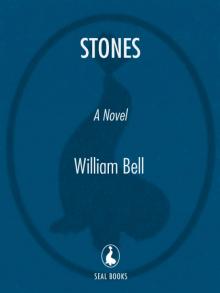 Stones
Stones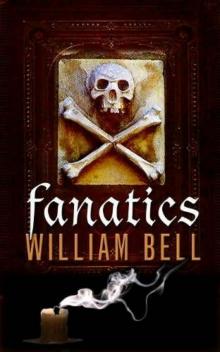 Fanatics
Fanatics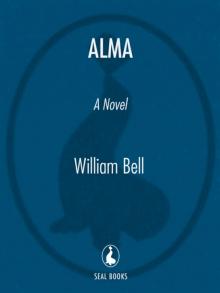 Alma
Alma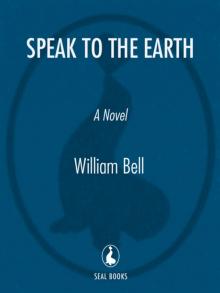 Speak to the Earth
Speak to the Earth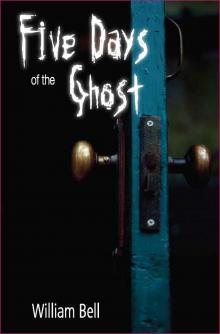 Five Days of the Ghost
Five Days of the Ghost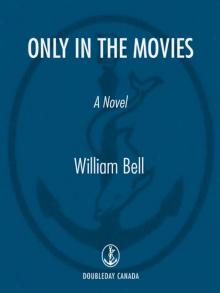 Only in the Movies
Only in the Movies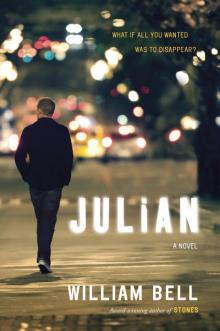 Julian
Julian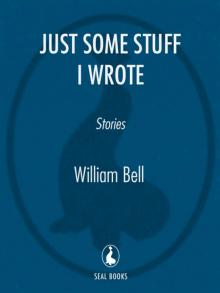 Just Some Stuff I Wrote
Just Some Stuff I Wrote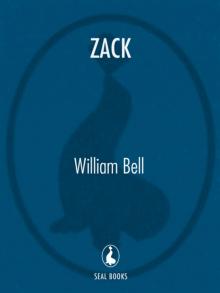 Zack
Zack Forbidden City
Forbidden City Death Wind
Death Wind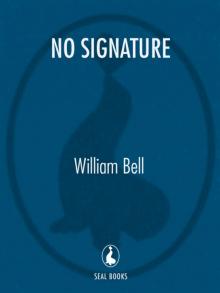 No Signature
No Signature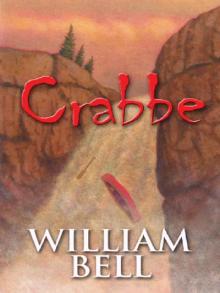 Crabbe
Crabbe